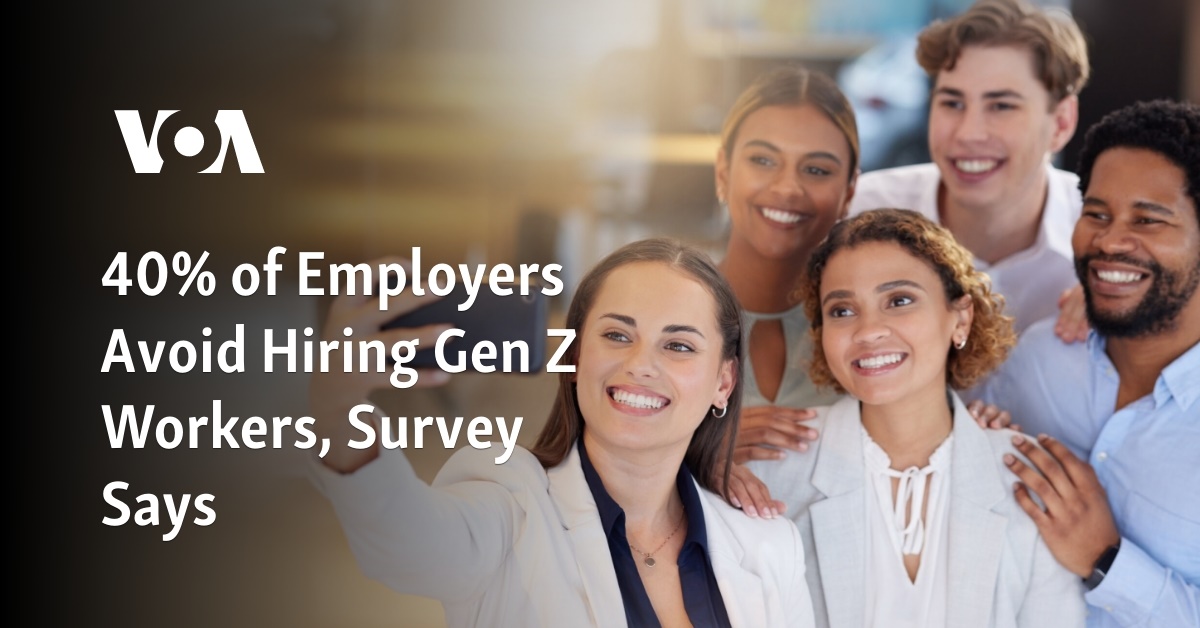All About America delves into various aspects of American culture, politics, trends, history, ideals, and places of interest.
A recent survey conducted in December 2023 among 800 U.S. directors and executives involved in the hiring process reveals that nearly 40% of managers refrain from hiring recent college graduates due to their perceived lack of preparedness for professional life, according to Intelligent.com.
Furthermore, the survey highlights that one in five employers have encountered instances where a recent college graduate brought a parent to a job interview. Additionally, 21% of employers reported candidates refusing to turn on their cameras during virtual interviews. Employers have also expressed concerns about interviewees struggling with eye contact, inappropriate attire, and the use of improper language.
These survey results do not come as a complete surprise to Michael Connors, an accounting and technology recruiter in Washington, who assists recent college graduates in their job interview preparations. Connors acknowledges a perceived lack of seriousness among candidates, questioning whether they genuinely desire the job or are merely going through the motions.
While Connors has not encountered candidates refusing to turn on their cameras, he has witnessed students participating in scheduled online interviews from unprofessional locations, such as outside a shopping mall.
Both Connors and Diane Gayeski, a professor of strategic communications at Ithaca College in New York, agree that the COVID-19 pandemic has affected the growth and maturity of recent college graduates.
Gayeski explains, “Their senior year in high school was heavily disrupted. They missed out on traditional graduations, proms, and parties. They were often unable to work during the summer before college. Furthermore, experiences like guest speakers, internships, and study abroad programs were largely unavailable to them once they entered college.”
Consequently, students have developed lower confidence in their ability to navigate the professional world. Gayeski emphasizes that college’s role in preparing students for their careers extends beyond classroom education, encompassing interactions with diverse individuals, community projects, and internships, all of which were severely limited during the pandemic.
The survey reports that 38% of employers prefer hiring older workers over recent college graduates. Employers are even willing to offer higher salaries and increased benefits, including more telework, to attract experienced individuals. Additionally, almost half of the employers surveyed admitted to terminating the employment of recent college graduates. The reasons cited include the graduates’ inability to handle workloads (63%), frequent tardiness (61%), missed deadlines (59%), and habitual lateness to meetings (53%).
Connors suggests that young workers might have a better chance managing their workload if they spent more time in the office, implying that remote work arrangements could hinder their progress. He also emphasizes the importance of mentorship in facilitating career growth and learning.
Gayeski has observed a rise in mental health issues among college students, prompting professors to adopt more flexible approaches regarding attendance and assignment due dates.
She notes, “There has been a significant change in the level of anxiety and the willingness to acknowledge mental health challenges. Some employers perceive this as a sign of weakness or an attempt to evade responsibilities. However, students have been encouraged to prioritize self-care, and admitting vulnerabilities is viewed as an admirable attribute.”
Although the pandemic exacerbated Gen Z’s lack of professional readiness, Connors suggests that this trend has been evolving over the past few years. He describes it as a “failure to launch” phenomenon, where recent graduates may be overly coddled and unprepared for the demanding nature of the real world. Connors also observes that many young individuals prioritize their hobbies and seek flexibility in their work-life balance, showing less concern for monetary gains or career progression.
According to the survey, half of the employers interviewed claimed that recent college graduates demanded unreasonable compensation. Gayeski speculates that this could be attributed to young people being more aware of corporate practices and income disparities. She explains, “They have been exposed to discussions in college about employee exploitation and witness the salaries of billionaire business owners. Consequently, they desire fair treatment and just compensation.”
A recent survey of 800 U.S. directors and executives revealed that almost four in 10 managers avoid hiring recent college graduates because they perceive them as unprepared for professional life. The survey also found that one in five employers reported a recent college graduate bringing a parent to a job interview, while 21% had candidates refuse to turn on their camera during virtual interviews. Employers cited concerns over lack of seriousness, unprofessional behavior, and poor communication skills among recent college graduates. Experts attribute this trend to the impact of the COVID-19 pandemic on the growth and maturity of these graduates, as they missed out on typical high school experiences and opportunities like internships and study abroad programs. Employers also expressed difficulties with recent college graduates’ ability to handle workloads, punctuality, meeting deadlines, and engagement in meetings. Mental health challenges and a desire for work-life balance were identified as contributing factors to the perceived lack of professional readiness among recent college graduates. Additionally, half of the employers surveyed reported recent college graduates asking for unreasonable compensation, which experts suggest may stem from their awareness of corporate exploitation and a desire for fair treatment.
Disclaimer: Only the headline and content of this report may have been reworked by Newsearay, staff; the rest of the content is auto-generated from a syndicated feed. The Article was originally published on Source link





